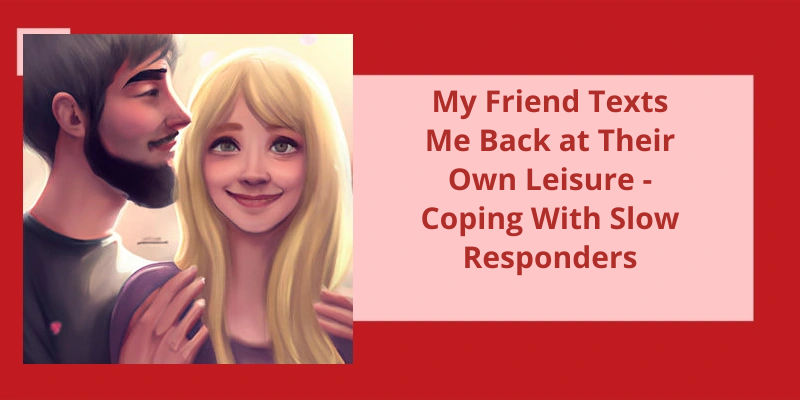The phrase "see you at the other end" is a curious expression often used in popular culture, literature, and even casual conversation. While the meaning of the phrase may not be immediately clear, it carries with it a weight of profound implications. This suggests the belief that there’s an afterlife, a realm beyond our mortal existence where departed souls go. This concept of an "other dimension" where we may be reunited with our loved ones who’ve passed on is present in many cultures and religions around the world. The question of what lies beyond death has long been a matter of fascination and speculation for humanity, and the mysterious phrase "see you at the other end" speaks to this universal curiosity.
What Does See You at the Other Side Mean?
This phrase has been interpreted in various ways throughout history, depending on cultural beliefs and religious backgrounds. Some see it as a reference to the afterlife, where they’ll reunite with loved ones who’ve passed away.
Others may use it as a way of saying goodbye or farewell, with the possibility of meeting again in the future. It’s often used to express a sense of optimism, and a belief that life continues on in some form beyond death.
Interestingly, the phrase “see you on the other side” has also been used in a variety of music and literature. Some songs and poems use it as a symbol of personal transformation or spiritual growth, suggesting that the end of life marks the beginning of a new journey.
In popular culture, the phrase has become increasingly common in horror or paranormal films, where it’s used to imply a crossing over into the world of the dead. This darker interpretation of the phrase can evoke feelings of fear or uncertainty, as it suggests there may be something mysterious or unknown waiting on the other side.
When it comes to phrases like “on your end” or “at your end,” it can be tricky to determine which is correct. However, there’s actually no hard and fast rule– it ultimately comes down to personal preference. That being said, there are some trends in usage that might be useful to know. For example, British speakers tend to favor “at your end,” while American speakers and those in the tech industry often use “on your end.”
Which Is Correct on Your End or at Your End?
The English language never ceases to amaze us, and there are always different ways to say the same sentence. A common doubt that arises is whether to say, “at your end” or “on your end.”. Both expressions have different connotations that depend on the context, location, and the speakers dialect. However, they both represent the same underlying meaning.
In general, the phrase “at your end” implies that there’s a location where something is happening, and that’s where the focus lies. It can be used when dealing with technical issues that require troubleshooting. This phrase signifies that the issue is present on the other persons computer or device and not related to user error. For example, if a customer service representative asks if there are any issues at your end, this could refer to your device, internet connection, or other technical problem.
Still, the former implies that there’s a point of focus without indicating a physical location. Instead, it can refer to a situation in a broader sense. For example, if a team leader asks about a projects progress, he or she may ask, “How is everything going on your end?”. This phrase means that it refers to someones part of the project, although they may not be in a particular location.
In American English, “on your end” is the more common expression used by programmers and tech support staff. Most of the American speakers use this phrase while referring to code or data from a specific location. For example, a software developer may say, “I’m not able to access that data on your end.”. This phrase means that they can’t retrieve the relevant information from the remote location due to technical issues.
It’s important to understand the context of a discussion to fully grasp the meaning of particular phrases. One such phrase is “at the other end,” which refers to a specific location or point in a discussion. It often implies a comparison between two different points or ends of a spectrum. Let’s delve deeper into this concept and explore different scenarios where “the other end” may come into play.
What Does at the Other End Mean?
This phrase is often used when discussing something that’s two distinguishable ends or points. It could refer to physical objects such as a stick, rope or a bridge, but it could also refer to ideas or concepts that have a beginning and an end, such as a journey, a presentation or a story.
When discussing communication, the phrase “at the other end” often refers to the person or people on the receiving end of a message. This could be in the context of phone calls, emails or social media messages. The person sending the message may be curious about the response or reaction of the person on the other end, making it an important part of any conversation.
In business, the phrase “at the other end” can relate to customers or clients. Companies often put a strong emphasis on providing excellent customer service, and this requires understanding and responding to the needs and concerns of those at the other end. This can involve listening to feedback, addressing complaints and ensuring that products or services meet the expectations of those who’re using them.
The phrase “at the other end” can also be used when discussing travel or transportation. For example, if someone is talking about a long road trip, they might say “we”ve made it to one end, now we just have to get to the other end”. This could refer to the city or destination that they’re trying to reach, and highlights the fact that the journey isn’t complete until they arrive at their intended destination.
In sports, the phrase “at the other end” can refer to the opposite side of the field or court. Players may be focused on making their way to the other end to score a point or make a play. This can be seen in basketball, soccer or even in football, where the goal posts are located at opposite ends of the field.
It highlights the importance of taking into consideration the other side or point of view, and recognizing that there are two ends to most situations.
Conclusion
It serves as a reminder that death isn’t an end, but rather a transition to another life. The notion of an "other end" implies the existence of another dimension, one where the departed may reside. Whether we envision this dimension as Heaven or Hell, the phrase "see you at the other end" reflects a belief in the afterlife and the promise of reuniting with loved ones beyond the veil of death. Such a powerful statement underscores the importance of cherishing the time we’ve with those we hold dear, knowing that our goodbyes may not necessarily be forever.






